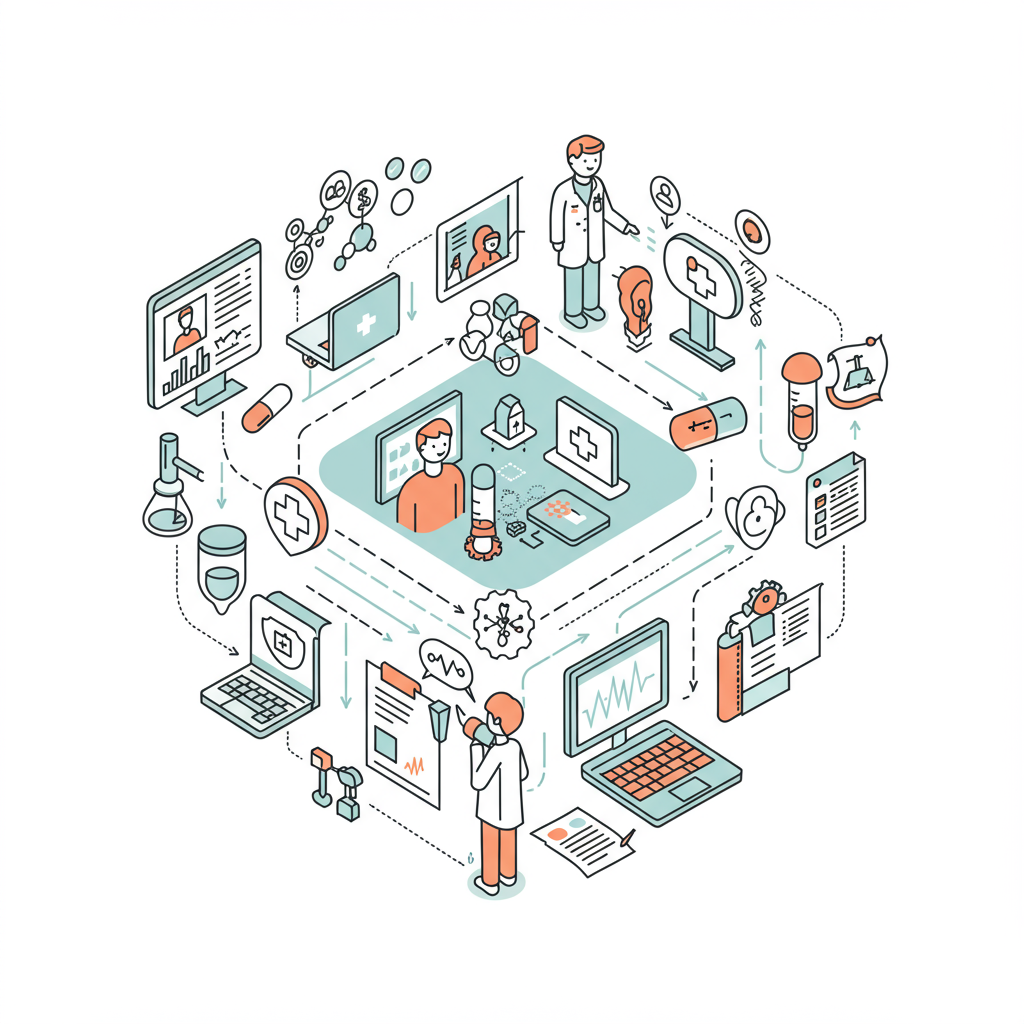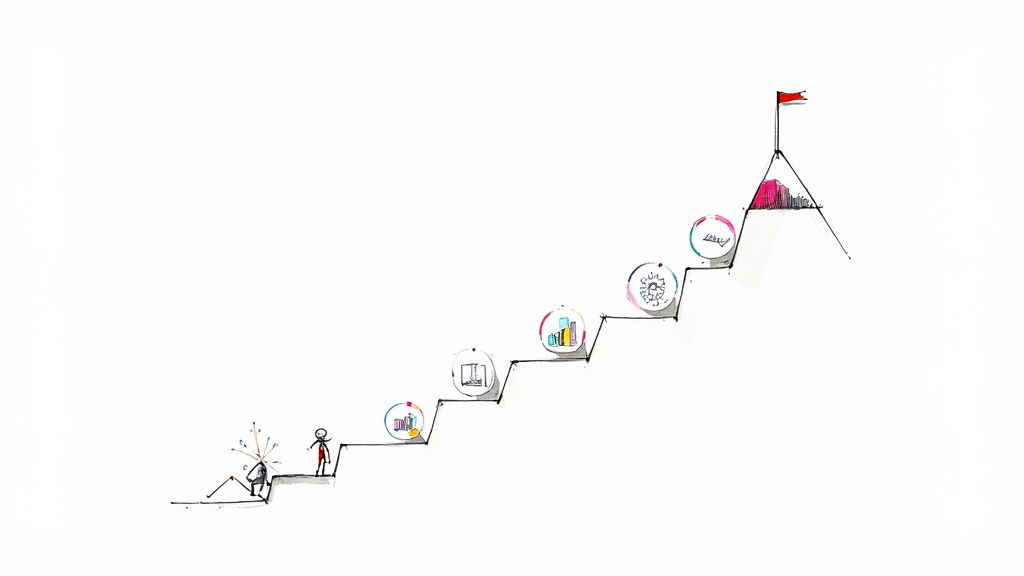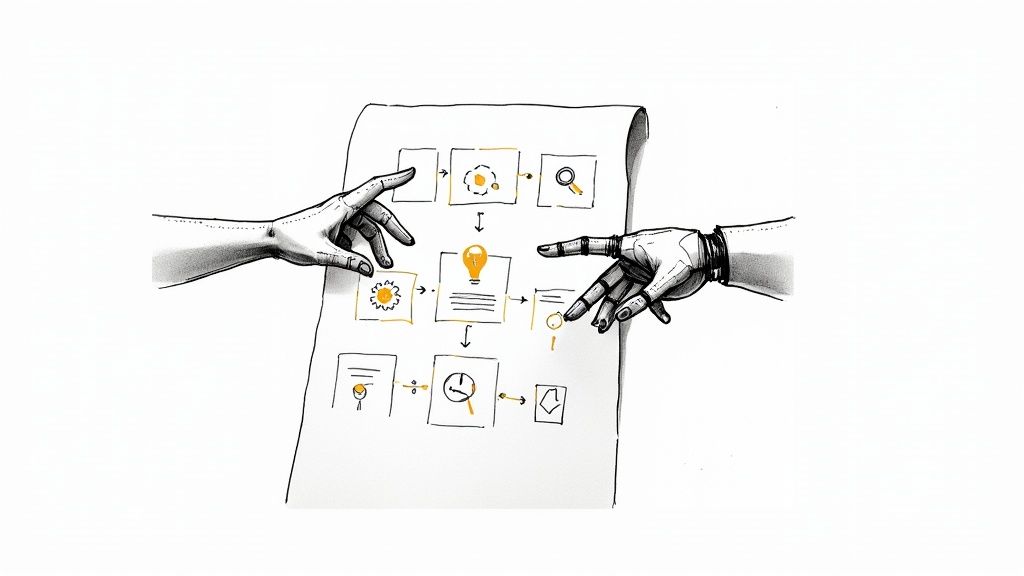How Healthcare Automation Is Shaping the Future
Unlock healthcare automation through AI strategy, tailored use cases, clear roadmaps, expert consulting, and trusted implementation partners.

Healthcare is one of the most crucial sectors that requires continuous improvement and attention. With increasing demand for healthcare services and growing universality, the need for resources is skyrocketing. This makes the chances of error very high, but on the other hand, the healthcare sector has an extremely low error tolerance.
Healthcare automation is one possibility that can improve the functioning of the sector without excessive costs. With the support of an AI strategy consulting partner, healthcare stakeholders can make significant improvements.
In recent years, artificial intelligence in healthcare has moved from being a promising concept to becoming a powerful reality. Across diagnostics, administration, and global health equity, AI is redefining how care is delivered. In this article, we explore how healthcare automation is transforming operations, improving patient outcomes, and building more efficient systems.
AI’s Role in Bridging Global Health Gaps
On a global scale, billions of people lack access to essential healthcare, with an estimated shortage of millions of health workers by the end of the decade. There is a critical unmet need. Artificial intelligence in healthcare offers tools that can help bridge this gap, such as AI systems that assist with fracture detection, patient triage, and early disease diagnosis. Despite its potential, healthcare lags behind other industries in AI adoption. As we work toward universal health coverage, AI use cases targeted to accessibility can help close this disparity.
Enhancing Diagnostics and Personalized Treatment
AI’s strength in pattern recognition has made diagnostic tools smarter and more accessible. AI-driven diagnostics can improve accuracy and reduce treatment costs while improving patient outcomes. Similarly, AI is reshaping diagnostics through deep learning, enabling early detection, sometimes even outperforming experienced clinicians.
Healthcare automation is also transforming drug discovery and personalized treatment plans. AI tools such as machine learning, natural language processing, and computer vision are now embedded in daily clinical workflows.
Streamlining Clinical Workflows and Administration
Real-world examples show how healthcare automation is already making an impact. For instance, Oracle Health Clinical AI Agent converts doctor-patient interactions into draft clinical notes with voice commands, manages medications, and supports decision-making. These tools reduce documentation burden and help address clinician burnout.
Oracle’s new generation of EHR systems supports voice-enabled AI that allows doctors to retrieve lab results or patient history simply by speaking. This brings smart interaction to routine tasks. The broader Oracle platform also integrates clinical, financial, and operational data into a unified AI-powered analytics system. This enables evidence-based care models and improved patient experience while reducing costs and manual workload.
Generative AI and Broader Adoption Trends
Generative AI is rapidly gaining traction in healthcare. Many payers, providers, and healthcare services are already exploring or using Gen AI in their operations. Applications range from clinical documentation to administrative support, improving workflows and stakeholder engagement.
Here is a real-world case analysis of what an AI tool can do in the hospital management: with AI clinical assistant, responding to queries and maintaining communication with the patients can be made efficient, encouraging consistancy and retention among them. This can also convert casual visitors into engaged patients in a hospital system.
Economic Value from AI Adoption
The economic benefits of healthcare automation are clear. AI integration brings compelling financial value, resulting in increased ROI. This makes it attractive not only as a technological innovation but also as a strategic business decision for organizations in the healthcare sector.
Global Equity, Strategy, and Collaboration
To fully realize AI’s benefits, investments must focus on evidence, infrastructure, and equity. This means creating systems that ensure sustainable access, not just developing tools. For example, AI has been used to help eliminate infectious diseases by expanding testing, increasing access, and guiding health workers to where they are most needed. Rwanda’s use of an AI-based Mpox detection tool at borders is a strong example.
Cultural transformation and collaboration are also essential. AI’s promise in drug discovery and clinical trials depends on organizational readiness to shift resources and adopt new workflows. Leadership must encourage a culture of openness and innovation. Frontline perspectives, from practitioners to startup leaders, help shape where AI can deliver real impact.
Looking Forward: Vision and Responsible Adoption
Healthcare automation holds exciting promise, but realizing it requires purpose and responsibility. AI can enable greater access, precision, and efficiency, yet it must be deployed ethically, equitably, and sustainably. Long-term infrastructure, trustworthy systems, and human-centered outcomes should remain the focus. A clear AI roadmap service will help guide organizations through this process.
Key Insights at a Glance
- Global Access and Equity: AI helps fill healthcare gaps, especially in underserved populations.
- Diagnostics and Treatment: Smarter, faster detection and personalized plans powered by AI.
- Clinical and Administrative Workflows: Voice-enabled AI and smart analytics reduce clinician burden and improve care.
- Generative AI: Adoption is rapidly expanding across healthcare functions.
- Economic Impact: AI delivers significant savings and revenue opportunities for healthcare providers.
- Strategy and Ethics: Sustainable adoption requires infrastructure, equity, and cultural readiness.
By centering on strategy, equity, and human needs, healthcare automation, when used thoughtfully, can transform care delivery, expand access, and build resilient health systems. As we move into this future, collaboration between clinicians, technologists, leaders, and policymakers will be our strongest advantage.
Integrating AI into healthcare is not an easy task. Explore our industry-specific strategic reports to understand what it takes for your organization to adopt AI successfully.
If your business is looking for a reliable AI implementation partner, let’s get connected today or visit our website for more information.



